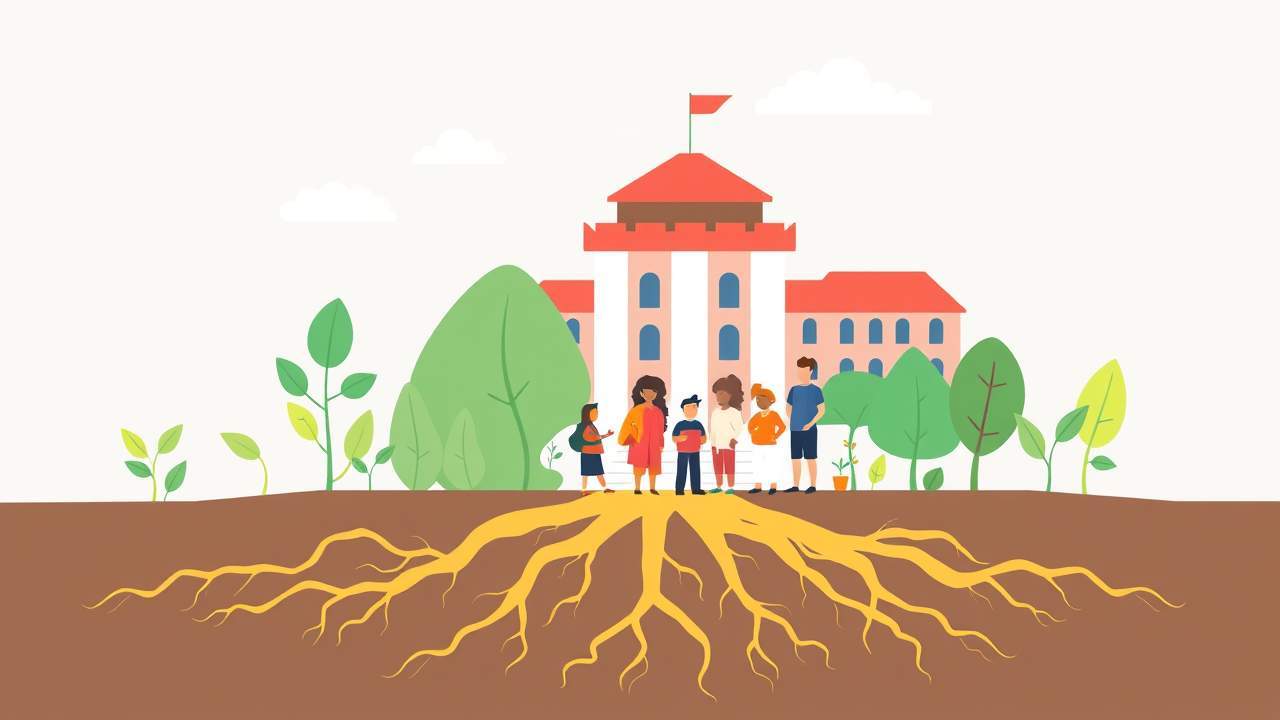Extension Foundation Online Campus

- Teacher: Lisa Linfield
This 6-unit course was created for elected and appointed Study Commissioners and ex officio members to help you navigate the process of conducting the Local Government Review in your community.
- Teacher: Ashley Kent
- Teacher: Lydia Maunz
- Teacher: colin ogilvie
- Teacher: Kate Wade
Participants will learn a variety of competencies related to district court administration and management.
- Teacher: Ashley Kent
- Teacher: Lydia Maunz
- Teacher: Kate Wade
Participants will learn a variety of competencies related to municipal government administration, finance, and management.
- Teacher: Nitasha Fazal
- Teacher: Ashley Kent
- Teacher: Lydia Maunz
- Teacher: Kate Wade
For experienced facilitators interested in expanding their facilitation skills and implementing this training program as instructors, we are offering a Train the Trainer course concurrent with the core Building Your Virtual Facilitation Skills training.
Train the Trainer participants will be expected to engage in core course content to gain familiarity with the content and structure of the training. In addition to core content, Train the Trainer cohort participants will participate in an additional hour per week of Live content as well as additional content on the course page to build skills in virtual content creation/adaptation and delivery.
Building Your Virtual Facilitation Skills, Train the Trainer participants will receive access to instructor materials including facilitator outlines for each session, course planning materials and web platform participant materials. Cohort sessions will explore implementation best practices, with technical support for adapting and implementing the training in your state.
Live Weekly Sessions, Fall Series: (All Times are Eastern)
Note: The first two hours of each live session are core content. The third hour includes only the train the trainer cohort.
* March 22, 2023 | 12:00-3:00pm
* March 29, 2023 | 12:00-3:00pm
* April 5, 2023 | 12:00-3:00pm
* April 12, 2023 | 12:00-3:00pm
*April 19, 2023 | 12:00-3:00pm
For any questions, please reach out to Sue Cagle at sue.cagle@unh.edu.
****This course is now full for the spring 2023 semester. Please contact the instructor with questions concerning future offerings.****- Teacher: Suzanne Cagle
This course will help you become a better facilitator in a rapidly evolving virtual world.
Do you find yourself leading more virtual groups? Would you like to improve engagement? Better manage the group’s process and challenges? Have more confidence with the multiple aspects of virtual technology? Adapt proven techniques and tools for a virtual environment? Join us as we explore the emerging best practices of virtual facilitation skills. This course builds on the well-known Strengthening Your Facilitation Skills Level One training. We will build confidence and practice skills in a safe, supportive space.
This course consists of two parts. Each week there will be videos, resource materials and discussion threads for you to engage with prior to our live weekly sessions. These materials will prepare you for for the live, weekly gatherings where we will focus our time on opportunities for deeper discussion of the issues and facilitation practice. It is important that you build time into your schedule for both of these components.
Live Weekly Sessions: (All Times are Eastern)
* April 17, 2024 | 12:00-2:00pm
* April 24, 2024 | 12:00-2:00pm
* May 1, 2024 | 12:00-2:00pm
* May 8, 2024 | 12:00-2:00pm
*May 15, 2024 | 12:00-2:00pm
- Teacher: Suzanne Cagle
- Teacher: Melissa Lee
- Teacher: Michael Polizzotti
- Teacher: Scott Slattery
- Teacher: Colette DePhelps
- Teacher: Mary Halbleib
- Teacher: Lora Lea Misterly
This course was created to meet the professional development needs of South Dakota’s and Idaho’s Think Make Create mobile lab communities. However, it is a valuable resource for anyone looking to create a quality STEM learning environment.
Through this course, educators will become more familiar and comfortable with the best practices of STEM programing with a focus on Positive Youth Development.
There is both a long and short version of the course to accommodate different needs.
- Teacher: Claire Sponseller
- Teacher: Christine Wood
- Instructor: Erin Doty

This course is free.
This course is open to:
- Researchers
- Organizations (including community-based and health systems)
- Decision-makers
- Project teams (including coalitions) who plan to use stakeholder-engaged research, to create research priorities or agendas.
- Community members
The Stakeholder Engagement in quEstion Development and prioritization (SEED) Method is a multi-stakeholder approach to engaging communities in research, problem solving, and action planning.
Developed by researchers at Virginia Commonwealth University and Virginia Tech, SEED provides a framework for collaborative research and action planning that can be scaled up or down depending on project resources and goals.
By the end of this course you will be able to …
- Understand how to apply the SEED Method to your collaborative projects
- Understand how to use and find SEED Method participatory tools
- Understand the roles of the community-based participatory Research Team and Topic Groups
- Understand how to utilize the following SEED Method participatory tools: stakeholder matrices, conceptual modeling, strategy development and prioritization
We are also on Connect Extension! For more information on the SEED Method, visit our site and join our SEED Method subgroup on Connect Extension at https://seed.extension.org/
- Teacher: Theodora Biney-Amissah
- Teacher: Samantha Lee
- Teacher: Carlin Rafie
- Teacher: Emily Zimmerman

The Reach Out for Wellness Course is designed to support the mental health needs of Extension professionals following natural disasters.
This research-based course is comprised of five modules with engaging videos and additional resources to help you reflect on your wellness and learn strategies to support your needs associated with disaster recovery.
Participation is free, self-paced and will help you:
- Better understand your own wellness.
- Gain insights on the personal impacts of natural disasters.
- Learn how to use your support system to cope with stress related to natural disasters.
- Instructor: Seth Teager
OBS allows you to stream video to FB. Learn more in this self-paced free class full of resources and tutorials. Course developer: Jen Chilek
- Teacher: Jen Chilek
- Teacher: Ashley Kent
- Teacher: Lydia Maunz
This online course consists of six units which address various topics relevant to municipal government in Montana. Each unit contains required reading, a discussion forum, and a quiz. It is anticipated that participants will complete each unit in approximately two hours for a total of 12 credited Institute hours.
For more information or to enroll please contact: Lydia Maunz, lydia.maunz@montana.edu, at Montana State University.- Teacher: Schuyler Germann
- Teacher: Ashley Kent
- Teacher: Lydia Maunz
- Teacher: Kate Wade
This course is intended to satisfy the annual ethics training requirements for the City of Bozeman employees, elected officials and appointed officials. The training is based on the Montana Code Annotated and City of Bozeman policy, and will educate participants in laws, policies, and best practices.
For more information or to enroll please contact: Ashley Kent, Montana State University Extension, ashleykent@montana.edu
- Teacher: Ashley Kent
- Teacher: Lydia Maunz
Instructor/Contact: Ashley Kent, Montana State University Extension’s Local Government Center, ashleykent@montana.edu
- Teacher: Schuyler Germann
- Teacher: Ashley Kent
- Teacher: Lydia Maunz
- Teacher: Kate Wade
a. Protocol and safety measures for utilizing the Nitrate QuikTest
b. Conditions leading to nitrate accumulation and forage management strategies to reduce risks
c. Nitrate toxicity in livestock and general feeding management/recommendations
d. Proper sampling and interpretation of laboratory analysis for nitrate content of feedstuffs
- Teacher: Janna Block
The audience for this course is:
By taking this course, students will learn:
For more information or to enroll please contact:
- Teacher: Schuyler Germann
- Teacher: Ashley Kent
- Teacher: Lydia Maunz
Participants will learn a variety of competencies related to district court administration and management. Montana Clerks of District Court have worked with the Montana State University Extension Local Government Center to develop educational curriculum. The curriculum is designed to ensure the clerks of district court across the state receive timely. relevant, and impactful training and that each clerk can demonstrate key skills to perform the duties of their position.
- Teacher: Schuyler Germann
- Teacher: Ashley Kent
- Teacher: Lydia Maunz
This "course" serves as a first level of support for users of the Extension Foundation Campus, its online course system. It provides a set of frequently asked questions designed to help users do some of their own troubleshooting, but also displays instructions for how to contact the Campus help desk.
- Teacher: Kim Scott
- Teacher: Aaron Weibe
Instructor/Contact: Ashley Kent, Montana State University Extension’s Local Government Center, ashleykent@montana.edu
- Teacher: Schuyler Germann
- Teacher: Ashley Kent
- Teacher: Lydia Maunz
